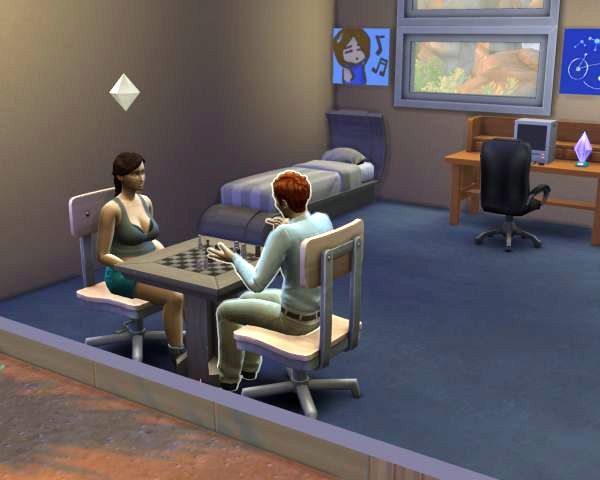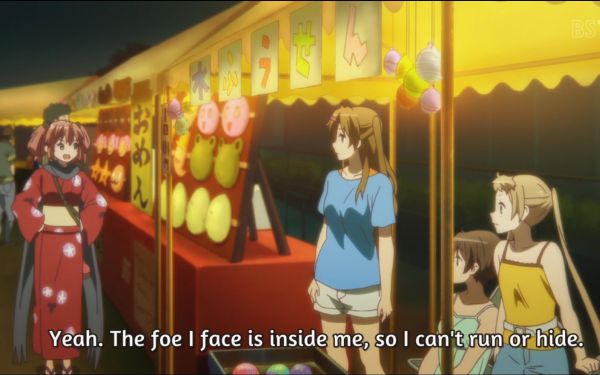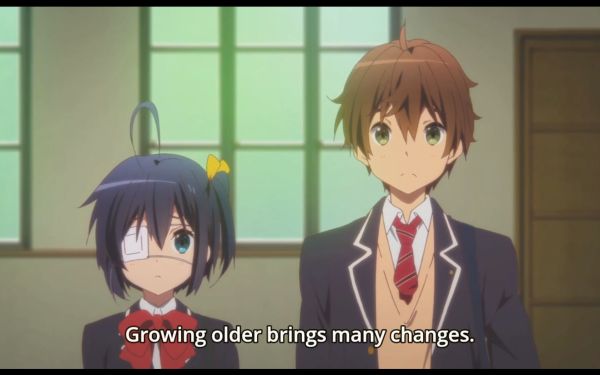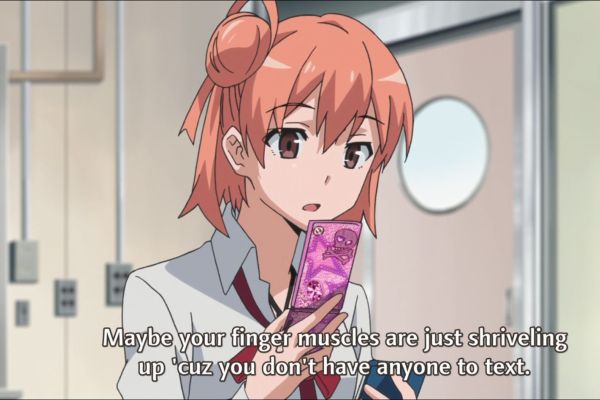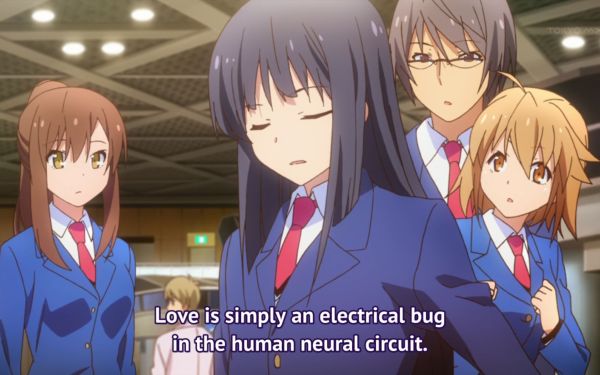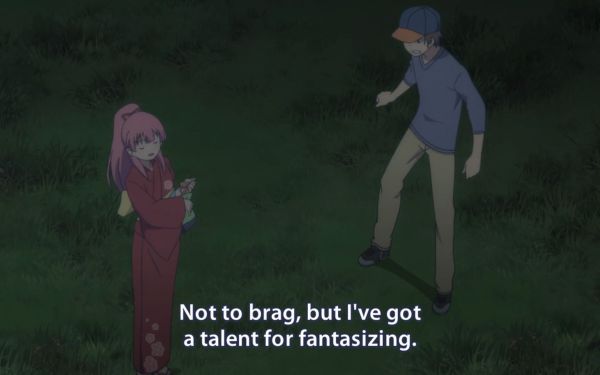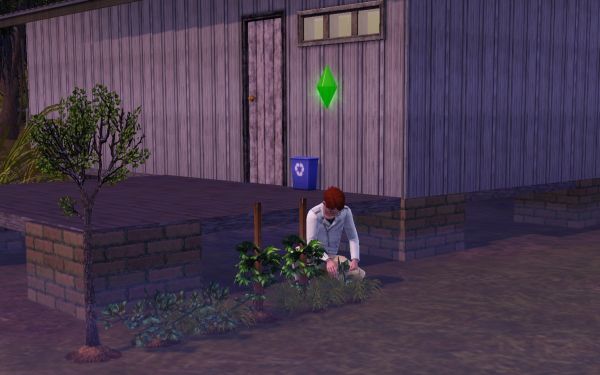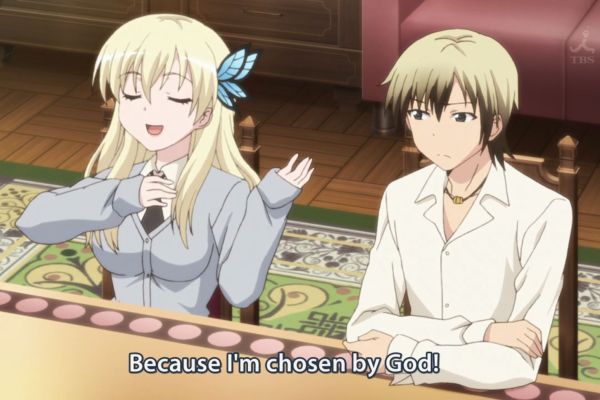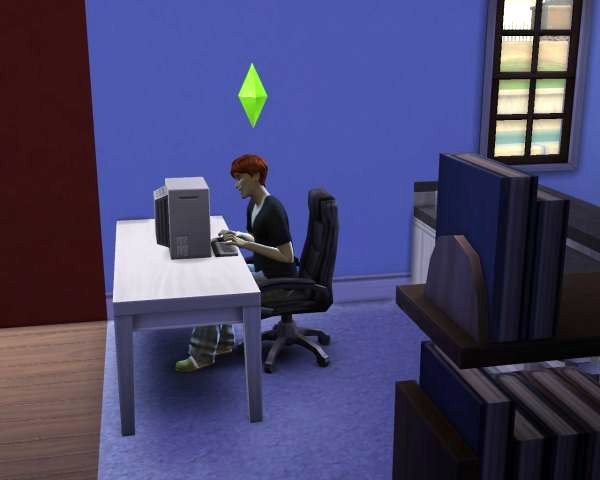
Introverts won’t be cast as demons, creatures you despise. Except when trolling forums.
Today’s title is of course from the awesome song by Garbage. (Here on YouTube, although I have bought it on Google Music.) I have sometimes wondered if this would not be a good “national anthem” for Aspies (people with Aspergers syndrome, or more generally on the high-functioning part of autism spectrum). It certainly sound like it, although it is probably unintentional – it is hard to imagine Aspies going into the popular music career willingly. Anyway, I am only half Aspie. There is also religion, which I also clearly experience differently from most humans.
As I promised in my previous entry, I am going to say something about the MOOC (online university course) “The Science of Happiness” from Berkeley and the Greater Good Science Center. Ironically the title is the same as a book by Ryuho Okawa, the Japanese author who gradually has begun to think of himself as “God or Buddha”. I guess that is an occupational risk. Anyway, the book was better, at least in the regard that it did not bombastically declare that people need a lot of friends to be happy. Rather the record-breaking author and would-be god from Venus holds the same view that me, that happiness comes from within, or from Heaven, which isn’t really two different things in this regard.
In contrast, let us look at this semi-mandatory quiz that appears in week 2 of the university course. It starts with this “what the hell” inducing question:
When I feel lonely, there are several people offline that I can talk to.
I clicked “Strongly disagree”, but it is more than that. The whole question is off. When I feel lonely? Uhm, yeah, that’s been about 5 minutes, perhaps 10, over the years since I left my birth home at the age of 15, a bit over 40 years ago now. I won’t say categorically that I can’t be lonely if I am without human company (online of offline or simulated). Just that it is not a “when” in my life. To me the question reads approximately like “When I miss having a raccoon in my living room, there are several raccoons outside that I can let in.” Not that there is anything wrong with raccoons, some of my best friends (online) self-identify as raccoons. And there is Rocket Raccoon … but back to our narrative.
The rest of the quiz is not quite as bad, but it certainly seems to presuppose that much of your “self” does not reside in your own head but is distributed across a wide range of other humans, who help you make decisions, solve your problems and influence what you are interested in. Unfortunately this seems to be an apt description of humans. Obviously when you are small, this must necessarily and literally be true. As a toddler you cannot understand yourself. But we aren’t supposed to remain toddlers.
The course goes into the idea that our evolutionary history explains the “hypersocial” nature of humans. The helpless infants and long childhood made it necessary to have strong family ties, close friendships and many connections to the rest of the tribe in order to successfully bring children up to become adults in their own right. We are not like sheep, who only need to eat and hide in the pack in order to grow up and make more sheep who grow up and make more sheep. Making a human is a whole adventure and it takes a village, as socialists like to say. (Conservatives think that it takes a family, which in my experience certainly doesn’t hurt. Well, I suppose if is a really evil family, the village is preferable.)
It is weird how people say the appendix is a relic of our evolutionary past and want to remove it, but when hypersociality (hypersocialism?) is a relic of our evolutionary past, they want to make it mandatory. At least the appendix doesn’t hurt unless it is inflamed. Loneliness hurts day and night, from what I heard. Shouldn’t they funnel research into how to make people more autistic? For now, the only known method is to make the next generation more autistic by having kids with an autist. Not that I am volunteering or anything, I am only half Aspie after all.
But as I said, this is not simply a matter of genes. It would be cool if Aspies are the new breed of man, Homo Superior, which is set to replace the primitive Homo Sapiens the way these replaced their grunting ancestors. A beautiful narrative. But it seems far-fetched that the Buddha, Lao-Tzu, and the innumerable saints and sages of the great world religions were all Aspies. They were filled with happiness even during prolonged solitude, and even in adversity where those around them resisted their message and responded with anger, threats and outright violence. Clearly it was not their friendships and social network that carried them through these times, unless you count their Invisible Friends.
It takes a lot of friends on Earth to substitute for one Friend in Heaven.
So being surrounded by family and friends can make people happy, but being alone can also make people happy. I sometimes say that “Evolutionary Psychology is the science of explaining why whatever is popular in the USA this decade is the natural state of humans and the rest of the world has got it wrong”, or words to that effect. And Americans are extraordinarily extroverted by most measures. It is not a country known for its monasteries, exactly. And not really for its happiness either. I mean, sure, compared to the developing world. But on a “happiness per dollar” scale, they fare very poorly indeed. Perhaps a little more peace and quiet would do them good.

